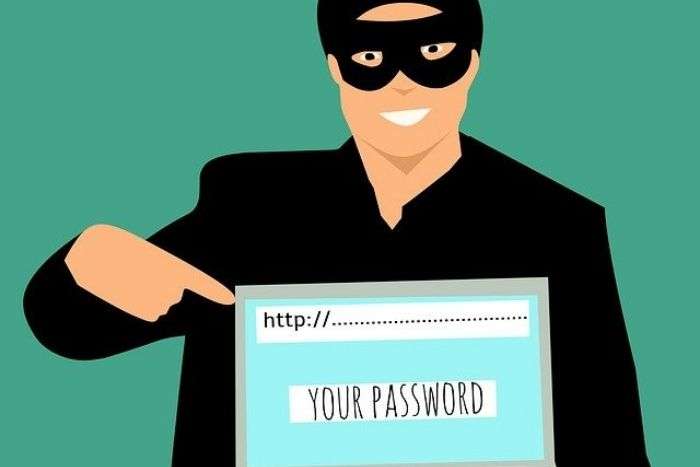The digital medium shortens distances and makes our daily lives more practical. However, you need to know some internet safety tips to have a positive experience. It’s just that technology also makes us more vulnerable to attacks by criminals.
Stay with us to understand the details and learn how to protect yourself.
What is internet security?
Internet security has to do with a series of good practices that we adopt to use the network more carefully. After all, just like the offline world, the digital environment also has its dangers.
For example, when you cross the street, you usually look for the crosswalk, don’t you? This is because it indicates the safest point to go from one side of the road to the other.
In the case of the internet, it is equally important to be concerned about where you circulate. Then, recommendations like avoiding suspicious sites and never clicking on strange links arise. We’ll talk more about them in a moment.
Internet security: why is it important?
Our entire life is recorded on the web. Each bank transaction, online purchase, or registration on a social network that we make yields a series of information.
When you browse websites and apps carelessly, it’s like leaving your door open. The area is susceptible to unwanted visits, which can even harm you. In case, steal your personal data.
“Ah, but who would be interested in my life? I’m not famous or rich!” you might think. But that’s not how the dynamic works.
Ordinary users are quite fragile in the face of attacks, as they do not have the same internet security structure as large corporations. And cybercriminals take advantage of this to apply small scams.
That is: you, your mother, or your neighbor have everything to become the next victims. Therefore, it is essential to know the threats to know how to dodge them.
The main dangers you run on the internet
There are several risks for those who do not protect themselves on the network. Among the most harmful, we can mention:
Theft of personal information
Data such as full name, date of birth, and CPF can be stolen and even sold to other thieves. They use this content to perform fraud, such as making expensive purchases on someone else’s behalf.
Identity theft
Some scammers can hack your WhatsApp account. Pretending to be you, they contact your friends and ask you to borrow money for an emergency. Then they add up with the money, obviously.
Exposure of Intimacy
Can you imagine having your private messages or intimate photos leaked for the whole world to see? Strangers would know where you live, who you hang out with, and what you do when no one is looking. It’s to end anyone’s sleep!
File Loss
Invading the personal device also compromises the documents stored there. Viruses, malware and other malicious software are capable of corrupting files or even completely erasing them from the system.
Most common cyber attacks
Now that you’ve learned the consequences of virtual scams, let’s list some of the most well-known types of attacks. Remember: anyone can become a victim, even those who don’t have that much money.
Phishing
In this scam, criminals put up a fake website, which imitates the official page of a bank or a virtual store. The goal is to capture user data, such as passwords and credit card numbers.
Then they access the person’s account, steal the money or even buy expensive items.
Malvertising
This is the English term for malicious advertising. Malefactors display the ad on a trusted website but hide malware there. So if you click on the banner, you end up infecting your device.
Malware
Malware is malicious programs that install themselves on your computer or cell phone without you noticing. From there, they create loopholes that compromise your internet security.
There are many categories such as viruses, worms, and trojans. Some of them make it easy for crooks to break into your machine. Other software is capable of corrupting files and even rendering the system unusable.
Ransomware
To make matters worse, there is a scam known as ransomware. In this case, the criminal uses malware to “hijack” the data and charge a ransom, usually in cryptocurrency. Values are usually millionaires.
What is hacking?
You may have heard someone associate the term “hacker” with computer hackers or cybercriminals. However, this is not a very precise definition.
Hackers are people who have a deep understanding of computers. We are often talking about programmers or other technology professionals.
Some of these talents are even hired by large corporations to develop innovative solutions and test the reliability of digital systems. It’s just that several of them, so skilled, can identify security flaws on the internet.
But not all hackers use this knowledge for evil. On the contrary: they help companies to reinforce protection protocols.
Because of this, in the 1990s, the expression “cracker” was developed. This, yes, designates criminal hackers, who try to invade financial systems, databases, and personal computers.
7 internet safety tips to protect yourself
Despite constant threats from crackers, it is possible to browse the web without falling into traps. Just take the following precautions. Check out!
- Never reveal your passwords to strangers or share personal information on the internet. If you have trouble remembering access codes, write them down in a notebook and keep them in a safe place indoors.
- When accessing the bank application or carrying out financial operations online, only use your personal device. Preferably, do this on your private network – never with the company’s Wi-Fi or in a public place, which is shared with many people.
- Install antivirus and firewall on your machine and always keep the programs updated. These solutions scan for spyware and other malicious software. Plus, they block suspicious content before it becomes a problem.
- Do not install pirated software on your computer. This type of product may contain security holes, facilitating remote access by intruders.
- Download only trusted apps on your smartphone. They are those developed by well-known companies that have a good rating in the virtual store. If in doubt, check user reviews before installing the app.
- Be suspicious of links received by message, especially if they are full of random letters and numbers. They can forward you to a fake page, with the aim of capturing your data or install a malicious program on your device.
- E-mail attachments also deserve attention. Ever since Internet security began to be discussed, this point has been reiterated frequently. Many of the files carry viruses and the like. Therefore, before opening the document, run the antivirus.



